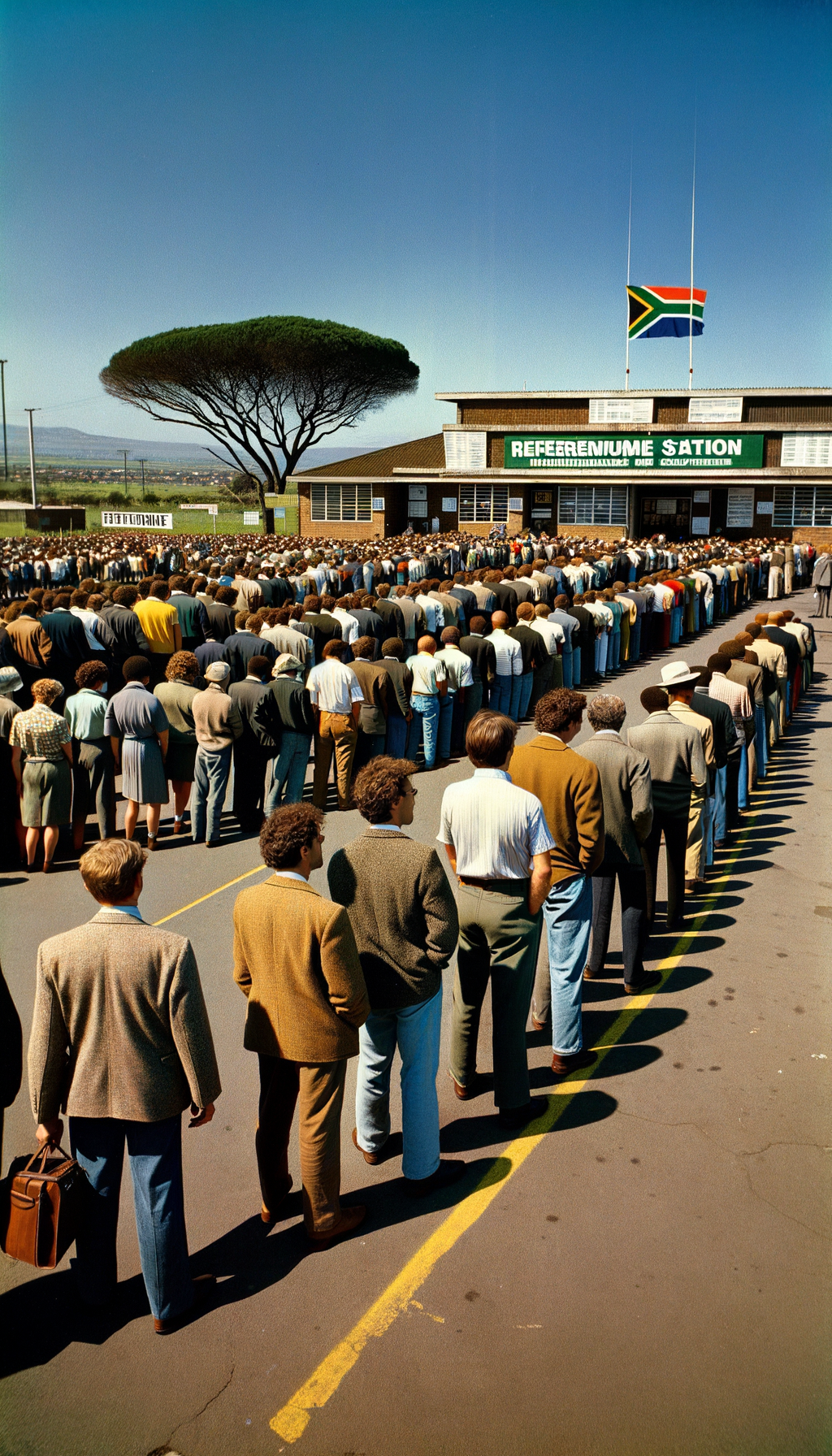South Africa – The Day South Africa Chose Reform – March 17, 1992
TLDR;
- Event: On March 17, 1992, white South Africans voted in a referendum to decide on continuing the government’s reform process to end apartheid, initiated by President F.W. de Klerk.
- Significance: The referendum was crucial as it could either lead to continued isolation and conflict or pave the way for a new era of change.
- Outcome: Nearly 69% of voters supported the reform, leading to negotiations and the first multiracial elections in 1994, with Nelson Mandela becoming president.
- Legacy: The vote marked a turning point towards reconciliation and democracy in South Africa.
–
Story
The air was thick with anticipation as white South Africans lined up at polling stations across the country. It was March 17, 1992, a day that would determine the fate of a nation. The question was simple yet profound: should the government continue with the reform process initiated by President F.W. de Klerk, which included negotiations to end apartheid? The world watched as the votes were cast, each ballot a step toward a new future.

For years, South Africa had been a nation divided, its people separated by laws that enforced racial discrimination. The apartheid regime had faced mounting international pressure and internal unrest. By the early 1990s, the winds of change were blowing stronger than ever. President F.W. de Klerk, recognizing the unsustainable nature of apartheid, called for a referendum among the white population to decide whether to support the government’s reform process.
The stakes were high. A vote against the reform process would mean continued isolation and conflict. A vote for change promised a new beginning, but with uncertainties and challenges. As the results were tallied, the world held its breath.
The outcome was decisive: nearly 69% of white voters chose to support the reform process. This pivotal moment paved the way for negotiations that would lead to the first multiracial elections in 1994 and the election of Nelson Mandela as president. It was a turning point that marked the beginning of a new era for South Africa, one of reconciliation and hope.
The referendum was not just a vote; it was a declaration of a collective desire to move beyond the shadows of the past and embrace a future of equality and democracy.
–
| Would you have voted for change in 1992, knowing the challenges that lay ahead? |